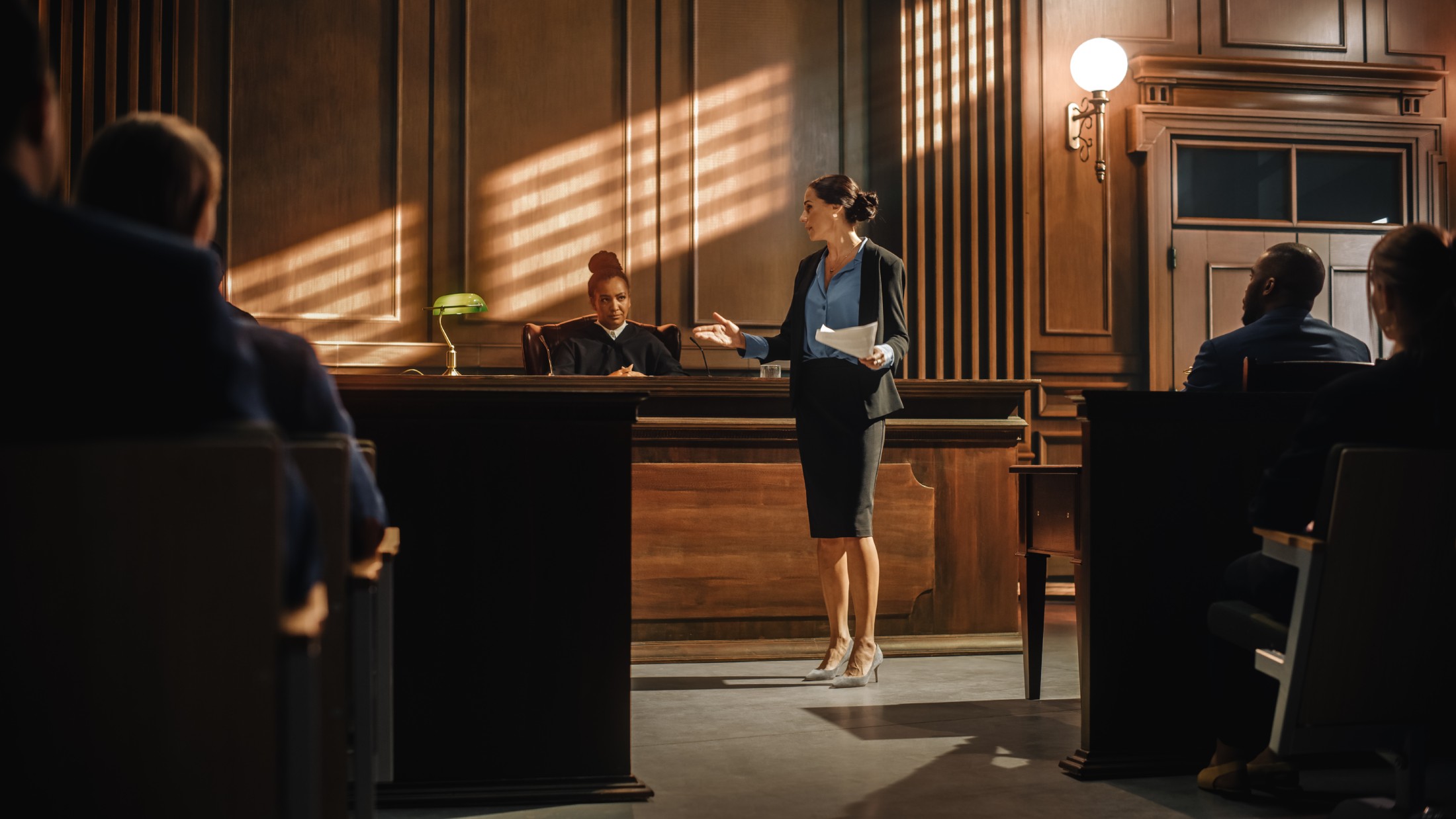Presenting Your Case

How to present a personal injury case to an attorney
Suffering an injury worthy of a lawsuit can be a traumatic experience. You may be dealing with more than the injury itself, including ongoing medical expenses, time away from work, or an inability to engage in activities you enjoyed before your injury. Making claims for personal injury may feel like another significant burden to you.
A step-by-step understanding of how to present your personal injury case to an attorney can help relieve some of that burden. The better you understand the personal injury process, the more favorable your outcome may be.
Start by gathering important information & documentation
There are few things more important to your claims for personal injury than having all of your case-related documentation together.
A personal injury case requires quite a bit of evidence because you’ll need to prove the extent of your injuries, the negligence of the responsible party, and the costs related to your injury.
This is important for establishing the circumstances of your injury. If you were injured in a car accident, you may have a damaged side-view mirror that can help establish where your vehicle was hit. Or maybe you were bitten by a dog, and you have clothing with bite marks still visible.
Were police called to the scene of your injury, or did any other authoritative body write a report of the incident? If so, you’ll want to have this documentation available for an attorney to review.
Did others witness your injury? Ensure you get their testimony about what they saw; it’s best to gather this evidence as soon as possible after the incident since human memories inevitably fade over time.
Pictures and/or video of the accident (or the aftermath) can be vital to your case. A nearby establishment may have captured your injury on their security camera. Or you could have skid marks from a vehicle that hit you or photos of an unsafe surface where you slipped and fell.
Just as important as the official documentation of the accident, you’ll want to have medical records or doctor’s notes that establish the extent and severity of your injuries. You’ll also want to have records of all medical appointments, tests, and prescriptions that resulted from your injuries.
Any other physical evidence you have that might be relevant. This could include anything from the shoes you were wearing during a slip-and-fall accident to the broken leash of the dog that bit you.
You’ll also want to gather any documentary evidence related to the consequences of your injury. For example, pay stubs show how much money you lost while missing work from your injuries or copies of disability and/or insurance claims you’ve filed.
Get ready to present your case
Once you’ve gathered all the information and documentation that supports your claims for personal injury, the next step is to take some time to prepare your presentation. Speaking to a personal injury lawyer is the perfect time to tell the whole story of your injury — how it happened, how it has impacted you, and the damages you’ve suffered. The more clearly and coherently you can tell that story, the better your chances of finding an attorney to help you with your claim.
Organize your information
Organize your case information and documentation in a logical and understandable manner. Start by presenting all information relevant to the accident or incident that caused your injury. Once you have established the negligence that led to your injury, present the documentation detailing the extent of your injury.
Create a timeline
An accurate chronology or timeline may help you to organize your case presentation. Clearly outlining the order in which events occurred will help you present the best version of your story. If you need assistance remembering key dates or sequences of events, use a physical calendar to keep track of the timeline. A physical calendar can also make a great visual that helps your audience follow your story.
Craft a summary
Once you’ve got all your detailed information in place, think about the most compelling way to summarize your case in a relatively short period of time. How would you tell the story to someone you only had two minutes to speak with? Which are the most important details you’d want that person to remember about your personal injury case?
Explain your objectives
Many personal injury attorneys offer free consultations for injury victims seeking a lawyer for their injury claims. Once you’ve gathered the evidence and documentation for your claim and figured out how to best present it, it’s time to select the best attorney for your situation and schedule a consultation.
When you arrive at the meeting, share the case facts clearly and concisely. Bring a copy of all evidence you have collected, or make a list of items you are collecting so the attorney understands where you are in the process.
As you discuss the case, communicate your objectives and what you hope to achieve through legal action. Whether it’s seeking compensation for medical bills, lost wages, pain and suffering, or other damages, your attorney needs to understand your priorities.
Your attorney will have some valuable advice for you; remember, if you’ve done your homework and chosen an attorney with experience in the field, they will know a lot more than you about how your personal injury case will likely play out.
If your attorney instructs you to follow all your doctor’s orders and suggests that you refer any communication from the insurance adjuster directly to your attorney’s office, it’s a good idea to listen to what they’re telling you.

Use your presentation information to build a strong strategy
Understanding how to present your personal injury case to an attorney is paramount to your case. However, that presentation isn’t helpful if you partner with a lawyer who doesn’t have the experience and knowledge to win. You want to work with an attorney who fully understands the personal injury process and has the necessary connections to build a winning case.
The Legal Help in Colorado team has the dedication and expertise to represent your personal injury case and help you build a winning strategy to ensure you receive the most compensation possible.
We often take cases other personal injury lawyers won’t, and our winning case records speak for themselves.
Knowledgeable. Compassionate. Dedicated.
We are your personal injury team.
Available 24/7 to take your call: (720) 743-3682